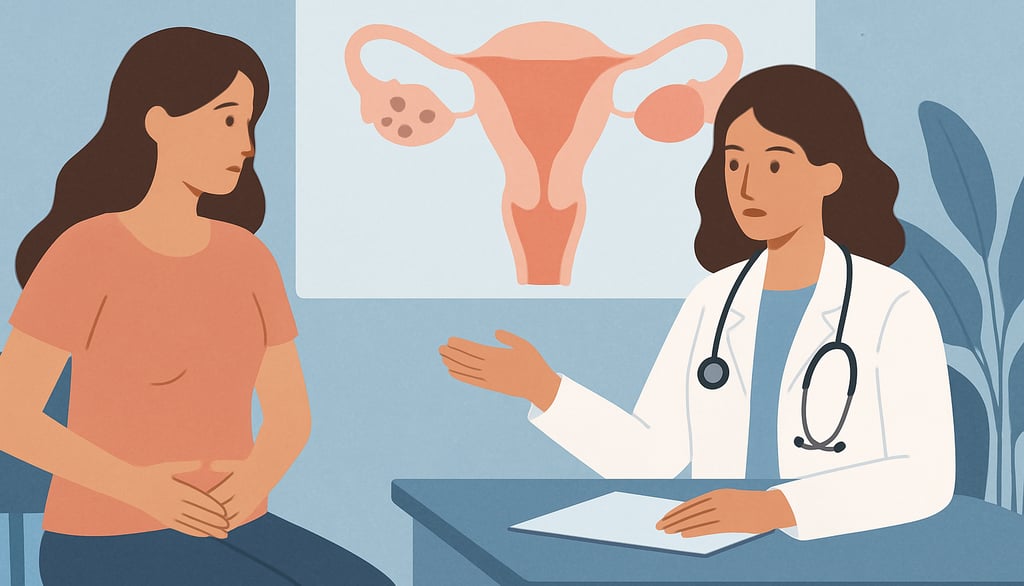Low Ovarian Reserve: What It Means, How It's Tested, and IVF Options That Can Help
Low ovarian reserve explained: what it means, how it's tested, and IVF treatment options to consider if your egg supply is low.
DIAGNOSIS & TESTING


When you're trying to conceive—especially through IVF—the term "low ovarian reserve" can feel alarming. But what does it actually mean? And more importantly, what can be done about it?
In this post, we’ll break down what low ovarian reserve really is, how it’s diagnosed, and what treatment paths are available—including how IVF can still offer hope.
What Is Ovarian Reserve?
Your ovarian reserve refers to the number and quality of eggs (oocytes) remaining in your ovaries. Unlike sperm, which regenerate continuously, women are born with all the eggs they’ll ever have. Over time, both the quantity and quality of eggs decline, especially after age 35.
A low ovarian reserve means your egg supply is lower than expected for your age. It doesn't mean you can't get pregnant, but it may affect your response to fertility treatments like IVF.
How Is Low Ovarian Reserve Diagnosed?
There’s no single test that gives the full picture, but fertility specialists usually assess ovarian reserve using a combination of the following:
1. AMH (Anti-Müllerian Hormone) Test
AMH is produced by the small follicles in your ovaries.
Higher levels = more eggs available
Lower levels = diminished reserve
AMH is a reliable early indicator of egg supply, though it doesn't reflect egg quality.
2. AFC (Antral Follicle Count)
This is done via a transvaginal ultrasound. The doctor counts the number of small follicles (2–10 mm) in each ovary.
A low AFC suggests fewer eggs are available to stimulate during IVF.
3. FSH (Follicle-Stimulating Hormone)
Measured on day 2–5 of your menstrual cycle, FSH helps mature eggs in the ovaries.
High FSH = the body is working harder to stimulate the ovaries, often indicating reduced reserve.
What Causes Low Ovarian Reserve?
Low ovarian reserve can be caused by:
Ageing (natural decline after mid-30s)
Genetic conditions (e.g., Fragile X premutation)
Endometriosis
Previous ovarian surgery or chemotherapy
Smoking
Unexplained / idiopathic factors
Some people with low reserve are still in their 20s or early 30s—this is often referred to as Diminished Ovarian Reserve (DOR) and may require earlier intervention.
Can You Get Pregnant With Low Ovarian Reserve?
Yes—pregnancy is still possible, both naturally and through fertility treatment. The challenge is that fewer eggs may be available during each cycle, and those eggs may be more vulnerable to chromosomal issues, particularly as you age.
IVF and Low Ovarian Reserve: What Are the Options?
1. Modified or Mild IVF Protocols
Clinics may use low-dose stimulation protocols to gently encourage the ovaries to produce eggs without overloading them. This can be easier on your body and may improve egg quality in some cases.
2. Natural IVF
Some clinics offer IVF with no stimulation drugs, collecting the one egg your body naturally produces. It’s not widely available on the NHS and may be better suited to those with extremely low reserve.
3. Embryo Banking
You may undergo several rounds of stimulation, collecting eggs (or embryos) over time before transferring. This can help build a better pool of embryos to choose from.
4. Preimplantation Genetic Testing (PGT-A)
If you're producing fewer embryos, PGT-A can help identify chromosomally normal ones for transfer—especially important as egg quality declines.
5. Donor Eggs
In some cases, your doctor may recommend using donor eggs. This can offer high success rates, particularly if your egg quality is severely compromised. It’s a deeply personal decision—some couples consider it after other options are exhausted.
NHS vs Private IVF: What’s Available?
In the UK, NHS funding for IVF often depends on your age, AMH levels, and FSH results, as well as your local ICB (formerly CCG) policies. Some people with low ovarian reserve may be excluded from NHS-funded IVF. A fertility specialist can advise you on your eligibility.
Private clinics may offer more personalised protocols and flexible treatment options for low responders.
Supporting Your Body and Mind
While ovarian reserve can't be increased, there are ways to support your overall reproductive health:
Avoid smoking and alcohol
Prioritise sleep and manage stress
Eat a balanced diet rich in healthy fats, protein, and antioxidants
Consider supplements (CoQ10, vitamin D, and omega-3s may support egg health—speak to your doctor)
A diagnosis of low ovarian reserve can feel overwhelming—but it’s not the end of the road. Many people go on to have successful IVF cycles, sometimes with just one or two eggs. Others explore alternative paths to parenthood with incredible results.
© 2025. All rights reserved.
